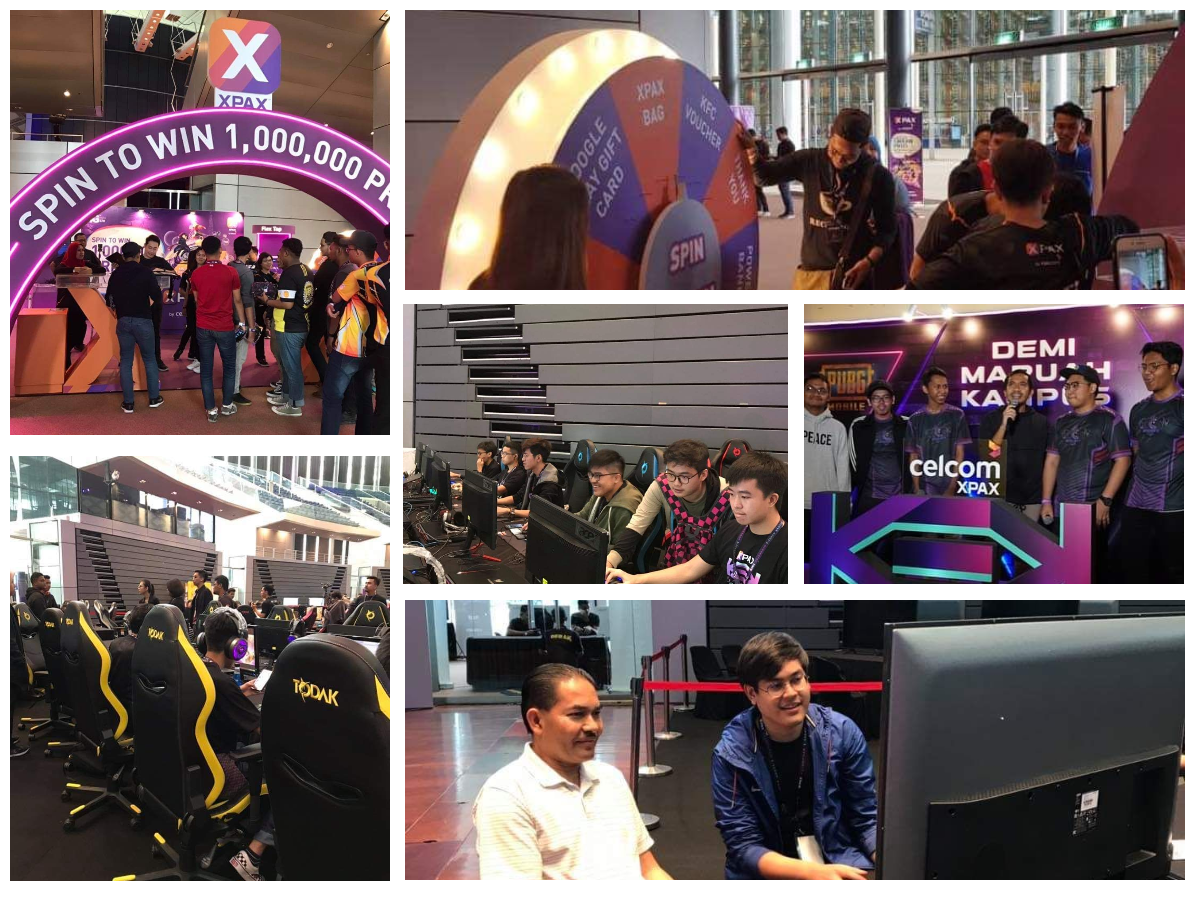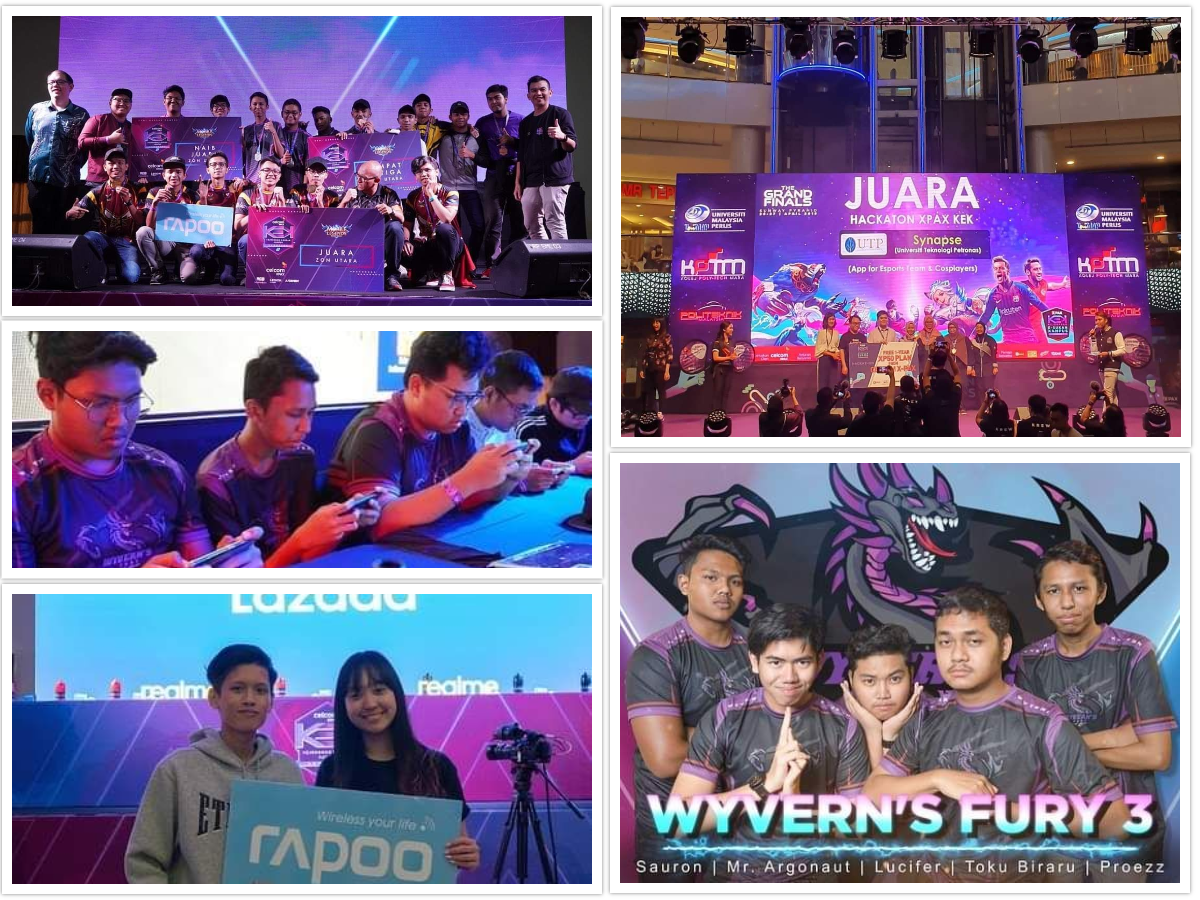“One of our promises after we won the student election last December was, we pledged to create a complete e-sports ecosystem at the university. At the time, this was far-reaching goal that we thought could help the development of local players," says Calvin Yeoh, 20, a chemical engineering student at UTP.
In the near term, Calvin says, the plan is to send UTP-develop players for Perak's Sukan Malaysia (SUKMA) esports selection. “After the announcement, esports are going to be contested at SUKMA. At the moment however, they (SUKMA's governing body) haven't decided whether it's going to be a medal match or a demo match."

In addition to creating the ecosystem needed to develop a strong pipeline of esports talents, the 'golden dream' of UTP's esports advocate group consists of two phase.
He says, “Firstly, we would like to organize a state-wide esports tournament for all Malaysian universities and colleges. In Perak alone, there are about 13 higher learning institutions. We will be talking to them soon to send out a formal invitation."
Ultimately, UTP Griffin, seeks to organize a nation-wide university tournament where all public and private universities take part to contest in the games.
"We've got the infrastructure, we've got the equipment, we've got everything we need to run large-scale and small-scale tournaments," Calvin says.
Currently, the advocate group has 15 high-committee members who are working towards the end goal.
Esports have gathered swift momentum in the last few years. Amid opposition from detractors around the country, Calvin says, “Just like chess, it challenges the finest minds. It gives more impact to our youth to have a target in playing the games instead of just doing it leisurely."
Further, with digital a widespread force in today's world, Calvin does not want UTP students to be left out as the sport holds massive potential in view of its global audience, events and sponsorship.
It all started to gather pace after UTP's own National Cyber Games in January according to Calvin.
“After the tournament, we managed to bring in Celcom's XPAX Kejohanan E-sukan Kampus in January earlier this year, offering prizes in excess of RM180,000," adds Calvin.

Currently however, Calvin says that the club is a bit light on experience in organizing events. Therefore, to make club members was given every opportunity they need to gain experience, UTP Griffin sent 30 students as volunteers to help the event organizer. He says, “We wanted our club members to learn more about organizing a huge-scale event like the tournament. Because we have a bigger agenda at the university."
It was the first e-sports campus tournament in Malaysia. The event gathered the attendance of more than 2,000 visitors as esports teams from all over the country competed for top prizes.
“We have a good relationship with Perak's e-sports Councilor who's been helping us to grow esports here," says Calvin. Interestingly, Perak is one of the few states in Malaysia renowned for having its own pro esports players.
Apart from preparing players for major games like DOTA and CSGO, UTP Griffin is also keen on developing a platform inside UTP for the trade and service of esports equipment. “This is a platform for the students to start their own business. In fact, some of them are already providing repair services," says Calvin.
In addition, the objective is to train our students to be casters. In esports, casters are broadcast personalities who provide commentary for games. “It's a big reason why we love esports," he says.
Further, the club also has plans for university social responsibility. Calvin says, “We want to go to schools, tell them about esports and IT literacy."
Indeed, this is another prime example of UTP's profound career connected learning and industry collaboration. From the work we do, we foster long-term relationships with our global social-impact partners to prepare our students, people and researchers as global citizens.
As a leading university in engineering, science and technology, our graduates are driven to exceed their professional objectives and contribute towards overcoming capability deficit across all sectors and industries.
Published on 2 July 2020

